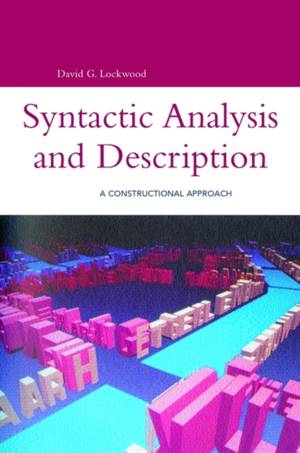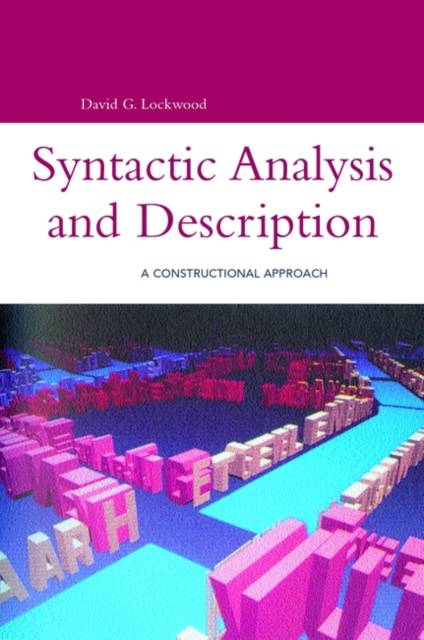
- Retrait gratuit dans votre magasin Club
- 7.000.000 titres dans notre catalogue
- Payer en toute sécurité
- Toujours un magasin près de chez vous
- Retrait gratuit dans votre magasin Club
- 7.000.0000 titres dans notre catalogue
- Payer en toute sécurité
- Toujours un magasin près de chez vous
160,45 €
+ 320 points
Format
Description
This book is designed to teach undergraduate and beginning graduate students about the varieties of syntactic phenomena in different languages and a method of analyzing and describing them. The method is based on the concept of the syntactic construction, which is shared by various views of language structure. In this particular presentation, a construction is characterized as a combination of obligatory and optional functions, and each of these functions is related to a class of manifestations. Syntax as a whole is then seen as interrelating constructions on the ranks (size-levels) of the phrase, clause, and sentence.
Besides the essential features of phrase, clause, and sentence structures, there are chapters devoted to special topics such as clitics, negation, clausal organization, and voice and related devices. While the emphasis is on the actual syntactic structures observable in the data, the relation of syntactic phenomena to linguistic meaning is also considered. In particular, the final chapter shows how account of syntax can often be simplified if control from meaning structure is assumed. Throughout the book, a distinction between meaningfulness and syntactic-well formedness is consistently made.Spécifications
Parties prenantes
- Auteur(s) :
- Editeur:
Contenu
- Nombre de pages :
- 386
- Langue:
- Anglais
- Collection :
Caractéristiques
- EAN:
- 9780826455222
- Date de parution :
- 31-01-03
- Format:
- Livre broché
- Format numérique:
- Trade paperback (VS)
- Dimensions :
- 152 mm x 240 mm
- Poids :
- 612 g

Les avis
Nous publions uniquement les avis qui respectent les conditions requises. Consultez nos conditions pour les avis.






